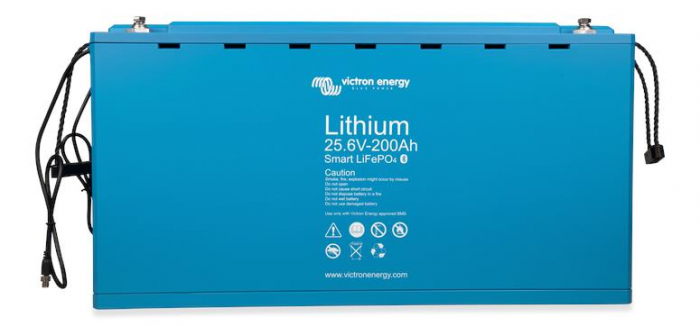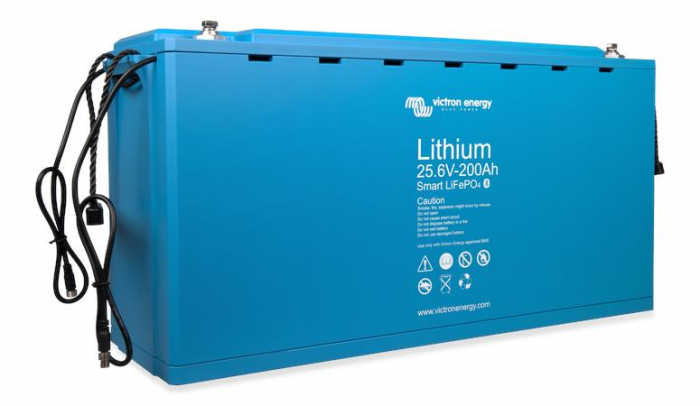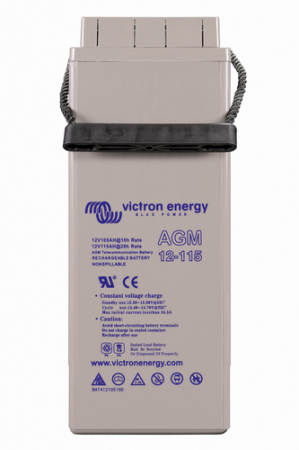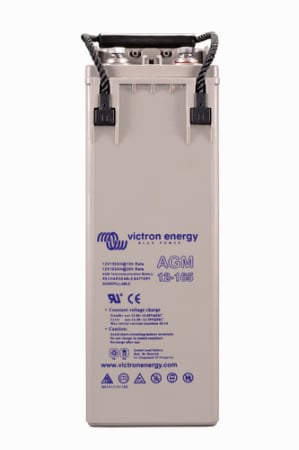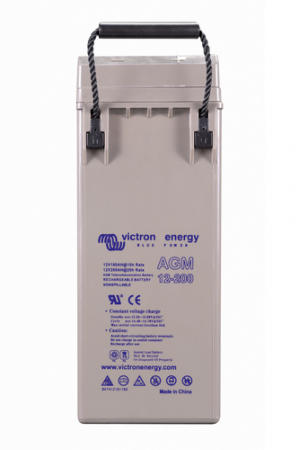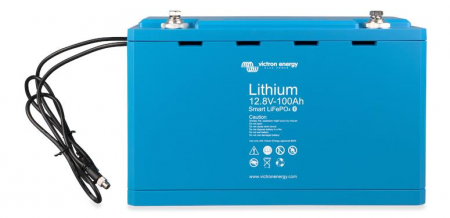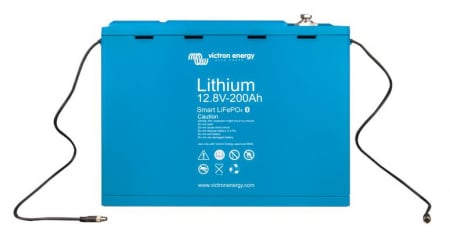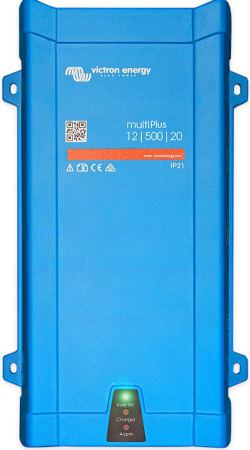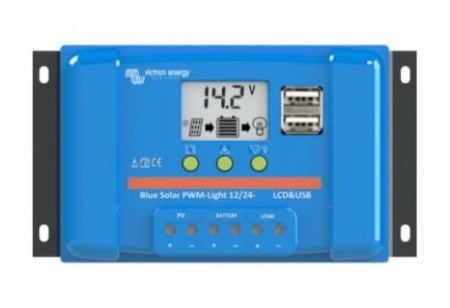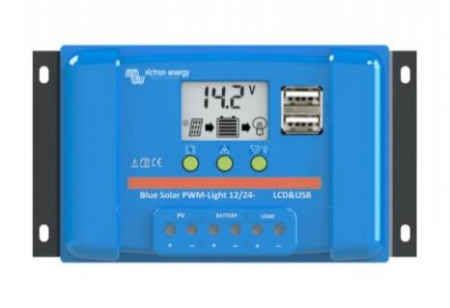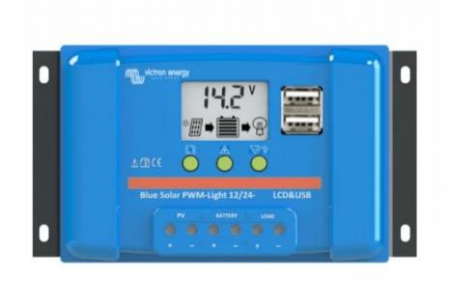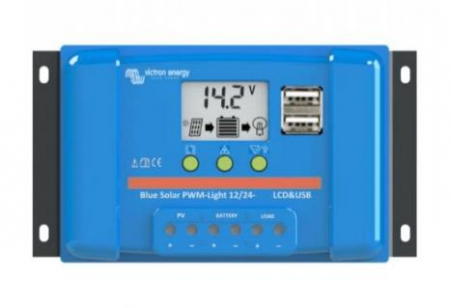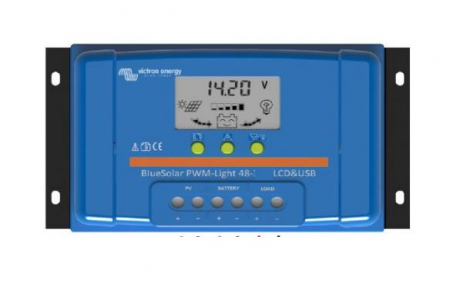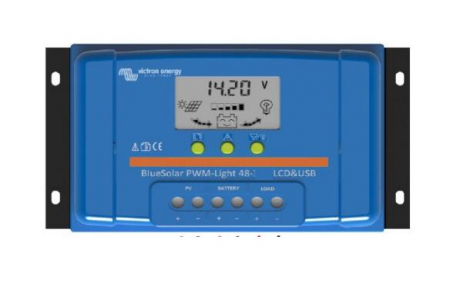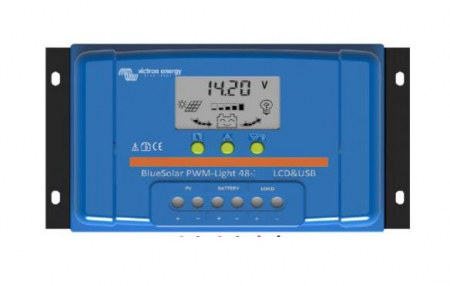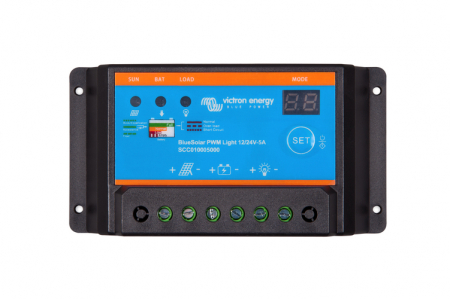Victron Energy LiFePO4 battery 25.6V 200Ah Smart
Product Code: BAT524120410
4.277,62 EUR
VAT included
VAT included
Available on order
Delivery date: 15 days
Do you need help? +4 03744 99990
- Description
- Characteristics
- Download
- Reviews (0)
Lithium-iron-phosphate (LiFePO4 or LFP) is the safest of the mainstream li-ion battery types. The nominal voltage of a LFP cell is 3,2V (lead-acid: 2V/cell). A 12,8V LFP battery therefore consists of 4 cells connected in series; and a 25,6V battery consists of 8 cells connected in series.
A lead-acid battery will fail prematurely due to sulfation:
If it operates in deficit mode during long periods of time (i.e. if the battery is rarely, or never at all, fully charged).
If it is left partially charged or worse, fully discharged (yacht or mobile home during wintertime).
A LFP battery does not need to be fully charged. Service life even slightly improves in case of partial charge instead of a full charge. This is a major advantage of LFP compared to lead-acid. Other advantages are the wide operating temperature range, excellent cycling performance, low internal resistance and high efficiency (see below).
LFP is therefore the chemistry of choice for demanding applications.
Efficient:
In several applications (especially off-grid solar and/or wind), energy efficiency can be of crucial importance.
The round-trip energy efficiency (discharge from 100% to 0% and back to 100% charged) of the average leadacid battery is 80%.
The round-trip energy efficiency of a LFP battery is 92%.
The charge process of lead-acid batteries becomes particularly inefficient when the 80% state of charge has been reached, resulting in efficiencies of 50% or even less in solar systems where several days of reserve energy is required (battery operating in 70% to 100% charged state). In contrast, a LFP battery will still achieve 90% efficiency under shallow discharge conditions.
Size and weight:
Saves up to 70% in space Saves up to 70% in weight.
LFP batteries are expensive when compared to lead-acid. But in demanding applications, the high initial cost will be more than compensated by longer service life, superior reliability and excellent efficiency.
With Bluetooth cell voltages, temperature and alarm status can be monitored. Very useful to localize a (potential) problem, such as cell imbalance.
BMS:
Our LFP batteries have integrated cell balancing and cell monitoring. Up to 5 batteries can be paralleled and up to four 12V batteries or two 24V batteries can be series connected, so that a 48V battery bank of up to 1500Ah can be assembled. The cell balancing/monitoring cables can be daisy-chained and must be connected to a Battery Management System (BMS).
Voltage (V): 25.6
Ah: 200
Terminal Type: M8
Terminal Layout: RH+
Dimensions (Including Terminals): H317 x W631 x D208
Battery Technology: Lithium
A lead-acid battery will fail prematurely due to sulfation:
If it operates in deficit mode during long periods of time (i.e. if the battery is rarely, or never at all, fully charged).
If it is left partially charged or worse, fully discharged (yacht or mobile home during wintertime).
A LFP battery does not need to be fully charged. Service life even slightly improves in case of partial charge instead of a full charge. This is a major advantage of LFP compared to lead-acid. Other advantages are the wide operating temperature range, excellent cycling performance, low internal resistance and high efficiency (see below).
LFP is therefore the chemistry of choice for demanding applications.
Efficient:
In several applications (especially off-grid solar and/or wind), energy efficiency can be of crucial importance.
The round-trip energy efficiency (discharge from 100% to 0% and back to 100% charged) of the average leadacid battery is 80%.
The round-trip energy efficiency of a LFP battery is 92%.
The charge process of lead-acid batteries becomes particularly inefficient when the 80% state of charge has been reached, resulting in efficiencies of 50% or even less in solar systems where several days of reserve energy is required (battery operating in 70% to 100% charged state). In contrast, a LFP battery will still achieve 90% efficiency under shallow discharge conditions.
Size and weight:
Saves up to 70% in space Saves up to 70% in weight.
LFP batteries are expensive when compared to lead-acid. But in demanding applications, the high initial cost will be more than compensated by longer service life, superior reliability and excellent efficiency.
With Bluetooth cell voltages, temperature and alarm status can be monitored. Very useful to localize a (potential) problem, such as cell imbalance.
BMS:
Our LFP batteries have integrated cell balancing and cell monitoring. Up to 5 batteries can be paralleled and up to four 12V batteries or two 24V batteries can be series connected, so that a 48V battery bank of up to 1500Ah can be assembled. The cell balancing/monitoring cables can be daisy-chained and must be connected to a Battery Management System (BMS).
Voltage (V): 25.6
Ah: 200
Terminal Type: M8
Terminal Layout: RH+
Dimensions (Including Terminals): H317 x W631 x D208
Battery Technology: Lithium
Capacity: 101Ah - 200Ah
-
Victron-Energy-12.8V-25.6V-Lithium-Iron-Phosphate-Batteries-Smart-Data-Sheet
Download






